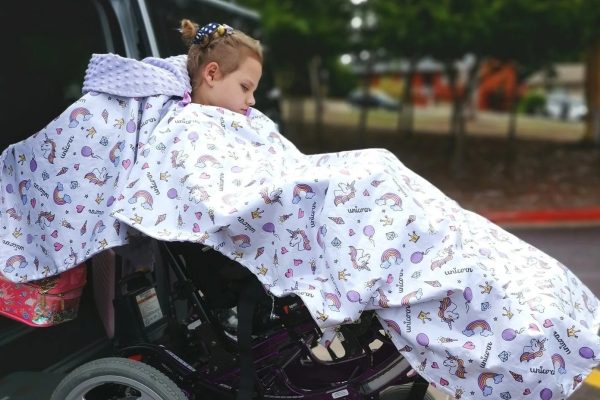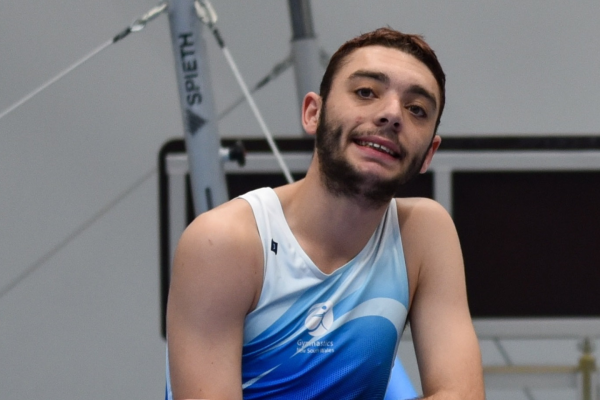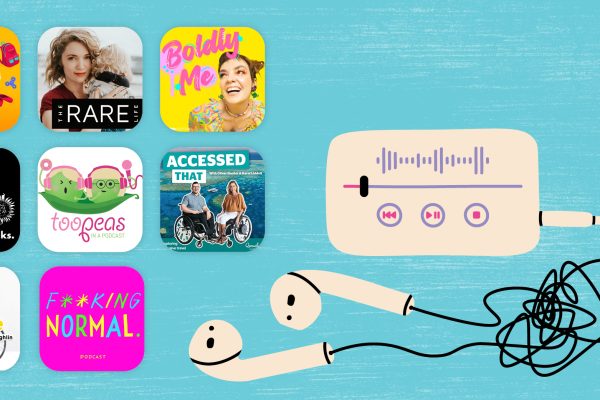
Kicking goals for inclusion
By Rebekah Devlin
Australian Rules Football is the nation’s most-watched sport. But the key to its success is the network of grassroots clubs and programs around the country. And in recent years, their inclusive programs have grown exponentially. No matter if you’re aiming to be the next Dusty, Buddy, Tayla or Daisy, or just looking for a fun start to your weekend, AFL is the game for all abilities.
NAB AFL AUSKICK
NAB AFL Auskick is the best way to introduce kids to Aussie Rules. It’s all about fun, getting hands (and feet) on the ball and constantly being involved in exciting activities. No AFL experience? No worries! Auskick offers an inclusive environment for everyone aged five to 12-years-old at any skill level. There’s no tackling or other contact, and the aim is always to have a great time.
There are various specialised Auskick programs for people with disability called Access All-Abilities Centres or simply AAA. In Western Australia, these centres are called StarKick. These select centres across the country are run by coaches who specialise, or have received additional training, in supporting children with disability in an Auskick setting.
AFL WHEELCHAIR
Developed in 2015, AFL Wheelchair has gained immense popularity in a short space of time. A modified version of Aussie Rules, it is designed to enable people with a physical disability to play AFL.
AFL Wheelchair is played on an indoor court, such as a basketball court, with football posts at each end. A team is made up of five players: two defenders, one midfielder and two forwards. Players use sports wheelchairs to move up and down the court and pass to teammates by either a handball (equivalent to a kick in traditional footy) or an underarm throw (equivalent to a handball). A tackle is performed by touching a player or their chair, and just like AFL, if a player has had prior opportunity and gets ‘tagged’ then it will be called holding the ball.
Only forwards can score goals, but the same scoring system applies. If a forward handballs (eg kicks) a ball through the big sticks, then the team scores six points.
Programs and competitions are available to play around the country and there is even a pathway for the best players to represent their state or territory at the Toyota Wheelchair AFL National Championships. Victoria Blue won the 2022 title, defeating South Australia in the final.
AFL BLIND
AFL Blind is a new adapted version of Aussie Rules which enables people with blindness or low vision to play.
A game of AFL Blind is just like a traditional game of footy, but with slight adaptions to rules and modifications to equipment to provide the support required.
Games are played indoors, which ensures a controlled environment to allow players to utilise their hearing. A specially-designed football has an electronic beeper inserted to produce sound loud enough to assist with tracking the ball. To assist with identifying the centre and location of the goals, there are flashing lights and high contrast backdrops behind the goals, and goal umpires use rattles to make noise when the football enters the scoring zone.
Currently there is a competition established in Victoria, with planning underway for programs around the country.
Want to give it a try at home? The audible Sherrin footballs are available to purchase through their website. sherrin.com.au/audible-football
ALLPLAY FOOTY
AllPlay Footy is a joint initiative between the AFL and Deakin University changing attitudes towards participation and empowering kids to play the way they want.
A range of resources for clubs, coaches, teachers, parents, health professionals and players has been developed to support kids with disabilities. There is extensive information on the AFL’s digital platform (play. afl/play/disability) where you can find practical tips and strategies, footy stories and videos. The resources have been developed using evidence-based research and by talking to people in the community, including individuals living with disability, families, coaches, and experts.
ALLPLAY FOOTY DISABILITY INCLUSION COACHING COURSE
This course helps coaches and program providers learn how to be more inclusive, so that all children and young people can play, regardless of ability. Course participants learn about inclusion and disability, and become familiar with practical, strengths-based and evidence-informed tools and resources that will help them modify programs and coaching to create more inclusive environments. Making simple changes will greatly improve the experience at footy for all young people and their families.
Best of all, this course is FREE for anyone to access. While it is designed for coaches, the AFL encourages parents, teachers and footy volunteers to also check it out.
The course has two core modules to complete:
• What is Disability & Inclusion?
• Supporting Emotions & Behaviours
There are also nine electives to choose from, covering some of the most common disabilities, delays and neurodivergences. These modules provide coaches with a great introduction to coaching kids with disability. It is recommended that coaches complete a minimum of two electives, but they are welcome to complete them all. Elective modules are:
• Anxiety
• Autism
• ADHD
• Blindness & low vision
• Cerebral palsy
• d/Deaf & hard of hearing
• Developmental Coordination Disorder
• Intellectual Disability
• Physical Disability
For more info on the course, head to afl.androgogic.com.au
GOOGLE FOOTY SKILLS LAB
Google, in partnership with the AFL, has created the Footy Skills Lab, an artificial intelligence-powered tool to help AFL fanatics sharpen their skills, straight from their smartphone.
At the time of launch in 2021, the need to improve access to training was greater than ever – as people across the country were in lockdown and community sport was paused. While Aussies can now join their teams back at the ground, there is always more to be done to improve access to professional coaching.
Google, working with the AFL’s Disability Inclusion team, continue to enhance Footy Skills Lab and have introduced new features so that players who are blind or have low vision, are deaf or hard of hearing, and those who use a wheelchair can also utilise the platform as a training tool.
New accessibility features include:
• The option to complete activities standing, or in a wheelchair. Learn from AFL Wheelchair stars who will help develop players’ ball control and chair skills.
• Closed captions are now optional, so the screen is not too busy for people with low vision.
• New cues when players finish an activity, including strong visual cues with colours and new audio at the end of an activity, so people who are deaf or hard of hearing know it’s finished.
• Go at your own pace – players can now slow the playback speed to 0.5 if it is helpful to have the activity slowed down.
Whether players are at the top of their game, or playing for fun, anyone can join in and sharpen their skills this season. To find out more, head to play.afl/footyskillslab
MATCH DAY EXPERIENCES
With AFL teams based in five capital cities, (plus matches played at other capital and regional cities), chances are, you can see a game in-person at some point during the season.
In recent years, some venues have installed sensory zones and rooms for match days. Melbourne’s Marvel Stadium and the MCG have one, as does GMHBA Stadium in Geelong and the Gabba in Brisbane. There are plans afoot at other venues around the country to install them.
The league has also just updated its sensory room guidelines for not just professional venues, but all grounds around the country looking to become more accommodating of sensory needs.
ACCESSIBLE TICKET OPTIONS
AFL venues cater for a variety of accessibility requirements. While they vary from venue to venue, options include:
Wheelchair bays – Wheelchair bay tickets for wheelchair users who will remain in their wheelchair (or mobility aid) during the match.
Easy Access Seating – Easy access seating is typically up or down a few steps and/or at the end of an aisle. These seats are in the main seating stands, but easier to access. They can be obtained by anyone with accessibility requirements who is not a wheelchair user.
Blindess or low vision
Where seating options are available for people who are blind or low vision, they will usually be located towards the front of seating stands, closer to the field of play.
Assistance Animals
The AFL welcomes visitors with trained or accredited assistance animals (such as guide dogs). Where available, relevant ticketing should be obtained to maintain the safety of the assistance animal and other spectators.
Companion Card
The AFL is a National Affiliate of the Companion Card program and provides an admission ticket for the eligible cardholder’s companion at no charge. The Companion Card program is applicable at all AFL Venues.
Parking
When available, access to accessible parking at AFL venues requires a valid accessible parking permit.






